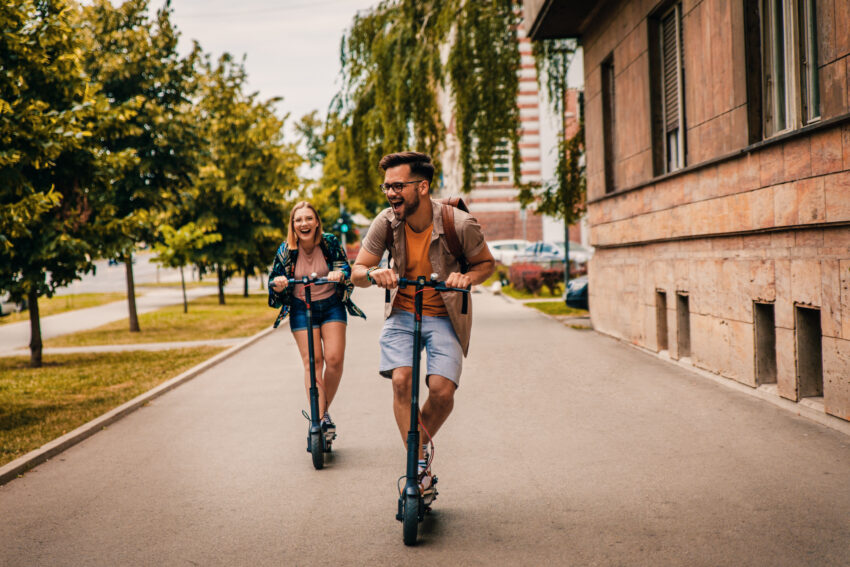Paris limits e-scooters to 6mph in busy pedestrian areas after deaths
The 15,000 e-scooters for hire in Paris have been slowed down today to 10km/h in parks, gardens and many streets in the latest attempt to curb the dangerous antics of their riders.
The three companies that operate the free-floating rental schemes in the world’s busiest e-scooter city acted together after threats by the council to ban the vehicles.
The French craze for la micromobilité as the personal transport is known, which covers everything from bicycles to skateboards, started in 2017 and surged with the coronavirus epidemic and the flight from public transport.
Within inner Paris during the first nine months this year, two women were killed and 329 people were injured in accidents involving e-scooters. Many riders ignore a ban on using them on pavements trying to dodge pedestrians, causing stress and accidents.
From today, in 700 areas across the capital, the rental scooters will automatically slow to a limit of 10km/h (6mph) from the maximum 20km/h allowed by the city.
Software will curb their maximum speed in the designated areas, with the help of “geofencing” fed by GPS satnav data. As well as all the city’s green spaces, the new areas cover big squares and the area around the Louvre, les Halles as well as the rue Montorgueil on the Left Bank.
Lime, Tier and Dott, the three operating companies, said they had acted together to “promote a sustainable, calm and shared” city and “improve cohabitation between different types of transport”.
The council, led by Anne Hidalgo, the mayor, said, however, that they were still not doing enough to calm the anarchy caused by scooter mania, whose practitioners vie with the swarm of “neo-cyclists” who have flooded the streets since the first lockdown early last year.
“This first step is not enough,” David Belliard, the deputy mayor in charge of personal transport, said. “They have left out several zones including the Seine embankments, the canal Saint Martin and busy shopping streets.” The council will soon extend more restrictions, he said. They include a possible e-scooter ban in all parks and gardens. In July, after a 31-year-old Italian woman was killed by two nurses riding on a single scooter, Belliard threatened to cancel the contracts with the three operators.
Too many scooters were using pavements, “creating a feeling of danger”, he said at the time. “Either there is a significant improvement in the situation and scooters settle into the public space without causing trouble . . . notably for pedestrians, or we will consider their complete prohibition,” he said.
Unlike Britain, where e-scooters are illegal on roads unless the devices are part of trial hire schemes, France has accepted them as part of a move to greener “urban personal mobility”, whether in self-service rentals or privately owned. While Britain and other countries require a driving licence to use them, no qualification is needed in France apart from being 12 or older.
The government adapted the highway code for them in 2019, decreeing them to be “engins de déplacement motorisé” or EDPMs. There is a 25km/h national speed limit. In towns, they must use bicycle lanes or roads and in the country they can use only dedicated bicycle paths.
The e-scooter industry has banded together to educate users and also put pressure on the state and local government to crack down on law breakers. “The authorities must do their work and punish dangerous behaviour by les trottinettistes, to prevent all users being given a bad name,” Fabrice Furlan, head of the Federation of Micromobility Professionals, said.






